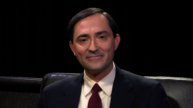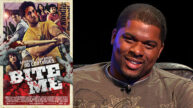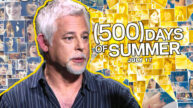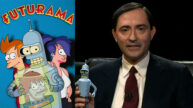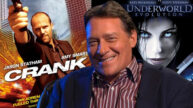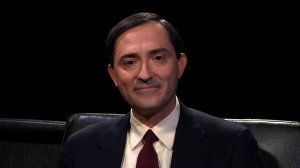Breaking into Acting Part I
Okay, so we haven’t been on the air that long but a question I’ve been getting on multiple shows is “how do I break into acting?” I’ve offered some on-air tips but since I can’t get into it as deeply as I’d like on the show, here is a blog series that will explain and offer tips:
For acting no matter where you live you obviously want to study how to act. There are three major forms of acting to consider. There is scene study, where you memorize material and perform it. There is cold reading, where you do not memorize, rather you have the “sides” or script material in your hands and you perform it (this is the most common form of acting in auditions). And, there is improvisation where you are given a “set-up” by the instructor and you perform without a script. One simple example of a set-up is, “your housemate (could be lover or roommate, you don’t know.) comes home and says, ‘There is something I have to tell you’.” For the sake of argument lets say you ask what? Your partner can then confess that he got a raise, has been cheating on you, is gay, got fired, saw a spaceship last night, is a closet anarchist, wants a divorce, etc etc… And, the scene goes from there.
ALL three are very important skills. There is tendency for some Los Angeles actors to ignore scene study and improvisation and focus too much on cold reading as that is what you do to get the job. The short sightedness here is that a background in scene study and improvisation will make you a better cold reader!
There are many different “methods” of acting. My preference is psychology based. Ivana Chubbuck is the best known for this style, having worked with many stars including Halle Berry who thanked Ivana in her Oscar speech. For those not in L.A. I would recommend her book “The Power of The Actor”. Upon your own research you may prefer a different method, but this book will augment whatever you do.
http://www.chubbucktechnique.com/
After a foundation of scene study, you may want to study cold reading or as some call it audition technique. In general, I like classes where you perform on camera so you can see what you’re doing. It just seems to register so much faster with actors then when an instructor explains it without the visual. Margie Habor has the top reputation here in Los Angeles and has also written a great book, “How to Get the Part Without Falling Apart.” http://www.margiehaber.com
Improvisation might not seem as obvious at first, but it is an important part of your training. Why? Who is the most important person in a scene? Everyone but you! And that’s where your attention needs to be focused. For now lets say it is one other actor. Okay, what do newer actors generally have a tough time with? Getting out of their own heads, being self-conscious. There focus is too much on memorizing lines (scene study) or on getting their lines from the script (cold reading). Improvisation forces you out of your head because there are no lines, and you are completely dependent on the other actor’s line and reaction to give you something to work off of. The skills you develop here can translate to your scene study and cold reading work. Another reason to study improvisation is that many of the directors I have interviewed and spoken to have said some of the best lines in their movies have come from the actors improving. Many directors (myself included) use it as a tool in the rehearsal process to help the actor’s find the character and generate more ideas.
In L.A., many people have heard of the improv school, The Groundlings. I did sample classes their years ago and came away with a great impression. For acting though, my preference is The Lembeck Comedy Workshop. Why? Their focus is on using improv to make you a better actor. The Groundlings, like most improv troups is improv to make you better at improv. In most instances this is great as well, and I’m kind of splitting hairs here; but, if you have the option to study where it’s improv for acting, I think that is the way to go if acting in film or TV is your goal. If your goal is to be on Saturday Night Live, then stick with Groundlings or a school like it.
http://www.harveylembeckcomedyworkshop.com/
http://www.groundlings.com/start.htm
With all forms of study always audit classes where you can (some might not allow auditors, most do) before signing up; and, do what’s best for you. Some methods work better for other people and vice versa. Many people get good results with The Meisner technique for example.
Beware of the guru coaches that inspire a dependence on them. Some may be great teachers, but you are the captain of your own ship.
If you reach a point in your work where you plateau and stop improving, it may be time to consider a different approach and or therapy. The reason I say therapy is because while I respect acting as a craft to be learned, studied, and as work, by the same token, it ain’t rocket science either. And, if you are having problems committing to the scene, expressing certain emotions and or vulnerabilities, the issue may not be technique, rather a block of some kind that might be aided through some counseling.
If you are considering a move to Los Angeles a great reference book is “The Working Actor’s Guide”. They actually have a website with a lot of great reference information for free. http://www.workingactors.com/
Next Monday: Part II… SAG/ AFTRA, and extra work.
And don’t forget, this Wednesday at 8pm pacific time on ‘Filmnut’ I have writer Kevin Michael Smith coming on the show to talk about ‘Pride’ starring Terrance Howard, and to discuss the writing process.
Jeff Schubert
www.myspace.com/powerofnow

